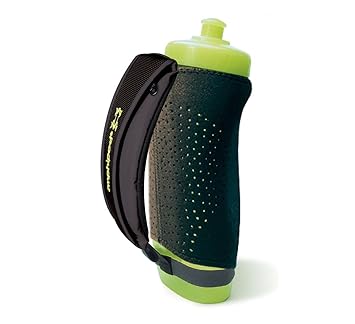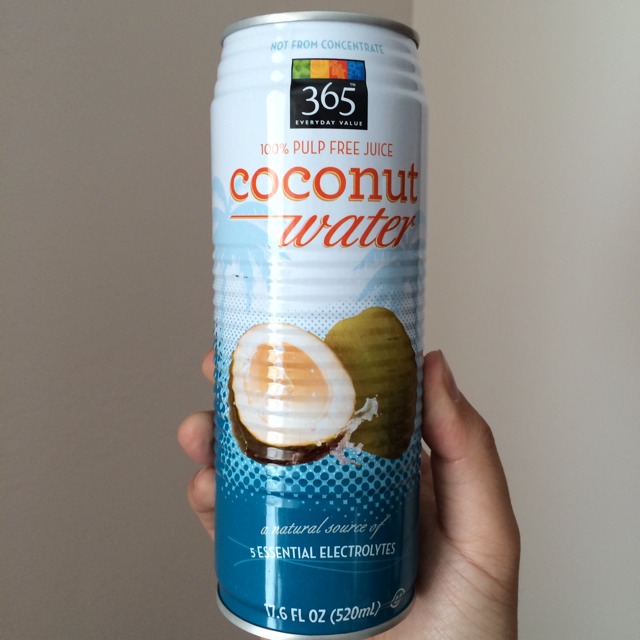The sun is at the highest point of the day, but this is the only time you have to get a workout in before your errands, plans, work, kids, family, or friends take over the rest of your day. So you go for it. When you are finished, your shorts and shirt are drenched and you desperately need to wash the sweat off of your skin that is still being produced from your body.
You know you're tired and that that workout really took a lot out of you. You know that you could wring out your shirt and probably fill an empty 20 oz bottle with your sweat (Okay, maybe not likely but it feels that way sometimes, right?). But what you may not know is probably what's most important for your body's health and its ability to recover from such a taxing workout.
After sweating so profusely, your body is in need of you replenishing two vital things: water and electrolytes. But what you need to be aware of is, for some, quite the paradox: drinking too much water is actually not recommended.
Sure, you need to drink water. Some runners, myself included, make sure to bring a water bottle with them when they run or do other outdoor workouts (cycling, hiking, strength training, etc.). But is water the only thing that is needed? In short: No.
A lot of water is lost when you sweat, especially during the warmer/hotter months of late spring and summer, but drinking only water will make you further deplete what your body has also lost while sweating: electrolytes. As the article will be able to explain in further detail, excess water causes you to urinate more and when you do this, electrolytes are lost (electrolytes are always lost when you pee, bleed, and sweat as they are located in your blood, body fluids, and urine).
There are several major electrolytes for proper body function but the top ones on most scientists lists are: Sodium, Potassium, Chloride, Calcium, and Magnesium. Of the many functions of electrolytes, the most important roles they have are to keep fluid levels balanced (includes water levels), to maintain muscles' ability to contract, and to transmit nerve impulses. Each electrolyte has a different responsibility in the body, but they are all required for optimal functioning and they need to be balanced in order for each of them to function properly. Therefore, you need to make sure you are replenishing the electrolytes you lost when you sweat (Not just when you exercise! If you don't sweat that much when you exercise, then you don't lose as much electrolytes. Know, however, that if you sweat a lot even when you aren't exercising, this means water & electrolytes are still being depleted.).
So you need water and you need electrolytes. How can you accomplish this delicate dance of balance? I love to use coconut water to help me out in this situation.
 C2O is probably one of my top choices for coconut water. Val and I always opt for coconut water that is not from concentrate.
C2O is probably one of my top choices for coconut water. Val and I always opt for coconut water that is not from concentrate.  This would probably be Val's top choice. It's a bit on the pricier end though.
This would probably be Val's top choice. It's a bit on the pricier end though.Coconut water is a beautiful thing. Some people can't stand the taste, but taste buds can change so I always suggest they give it a try. So why is coconut water a beautiful and natural sports drink? Here's a rundown of its nutrition content as provided by WebMD:
-It has fewer calories, less sodium, and more potassium than a sports drink. Ounce per ounce, most unflavored coconut water contains 5.45 calories, 1.3 grams sugar, 61 milligrams (mg) of potassium, and 5.45 mg of sodium compared to Gatorade, which has 6.25 calories, 1.75 grams of sugar, 3.75 mg of potassium, and 13.75 mg of sodium.
So let's quickly discuss this nutrition breakdown. Sugar. Bad right? Wrong, unless you need to closely watch your sugar levels for a medical purpose of course. Your body just burned up carbohydrates and glycogen that was stored in your body. Sugar, especially from natural products such as coconut water, is great to begin replenishing glycogen. Sodium. It's an electrolyte so it is absolutely essential. A typical container of coconut water does not have too much sodium in it though so more may be needed from other sources such as certain veggies. Potassium. It's got a lot of this which Americans need more of in their diet. The only thing is that for the body to properly absorb potassium, adequate magnesium levels need to be present. Coconut water is not high in magnesium content so look for magnesium in your leafy greens, beans, some nuts, brown rice and sweet potatoes. When you want magnesium, think food that comes from the ground.
So this is why Val and I love grabbing a coconut water or having some in the fridge for after a hard workout. It doesn't take the place of water, but instead of downing 16 ounces of water after a workout, I'd advise you mix in some coconut water or some fruits that will replenish your electrolytes.
I know a list is always handy but there are so many fruits and vegetables that are high in electrolytes that I chose to not make a list so not to give the impression that you shouldn't eat those not included. You can go ahead and run a Google search for "fruits high in potassium" or "veggies high in sodium" if you want these specifics, but be mindful to not exclude the veggies and fruits not present on those lists.
Wow...that was a lot and I apologize for information overload, but it needed to be done. I tried teaching my track athletes this stuff throughout the season and I will continue to push this knowledge next year as well. I wish I knew it when I was running track and playing soccer back in high school. I wish I knew that excessively drinking coffee would only work to dehydrate the the body's muscles (makes you pee a lot!) which is the last thing I needed, especially on days I went right from a 90 minute track practice to a 2 hour travel team soccer practice. So I hope you
 This is the bottle I use when I go on my medium and long runs. The brand is Amphipod and it's a 20oz bottle which is perfect for me. I never drink plain water in this. I'll always throw a Nuun tablet in there to ensure I am consuming the electrolytes mentioned earlier that are being lost as I'm sweating.
This is the bottle I use when I go on my medium and long runs. The brand is Amphipod and it's a 20oz bottle which is perfect for me. I never drink plain water in this. I'll always throw a Nuun tablet in there to ensure I am consuming the electrolytes mentioned earlier that are being lost as I'm sweating.
Last summer I mixed coconut water and Nuun in a bottle during a 6 hour event and that worked perfectly and tasted delicious!
Here I am before last week's 50k. See the bottle in my hand? I've learned the hard way that properly hydrating during a long distance event is absolutely essential.
 Whole Foods 365 Everyday Value brand of coconut water is another one of my favorites.
Whole Foods 365 Everyday Value brand of coconut water is another one of my favorites.Lastly, it's not a bad idea to have a general idea of how much you actually should be drinking as the numbers are different per each individual. This page from Running Competitor and this one from Runner's World provide a formula that can be used to calculate your sweat rate for those of you who are curious. A quick Google search for "calculating sweat rate" will provide other ways as well.
That's all for today! Would love to read some comments if anyone has anything they'd like to share such as your go-to for electrolytes or perhaps you would like to know why I didn't recommend a common sports drink such as Gatorade or Powerade.
Happy Running (and Hydrating!)


Good info (as always)! I use Endurolyte tabs from REI. Been fighting cramps for years (always seem to happen around mile 10 of a half marathon), but the electrolytes help. I need to add in the coconut water next, as I may have been drinking too much water (and a little coffee) and actually increasing the cramp potential inadvertently. Doh!
ReplyDelete